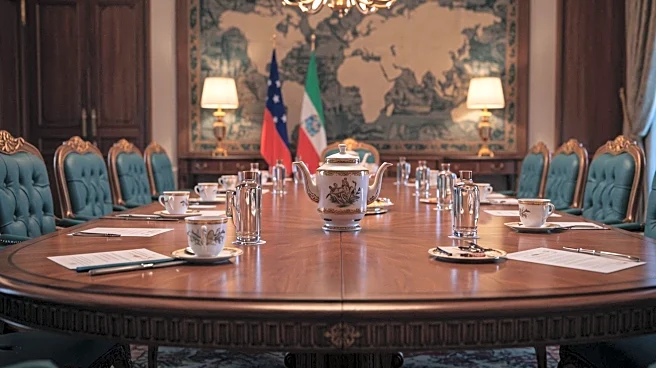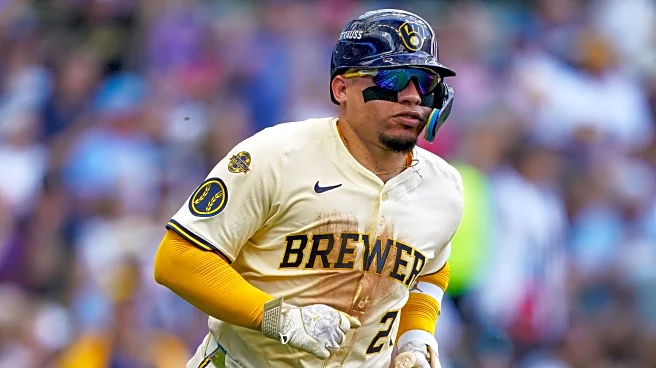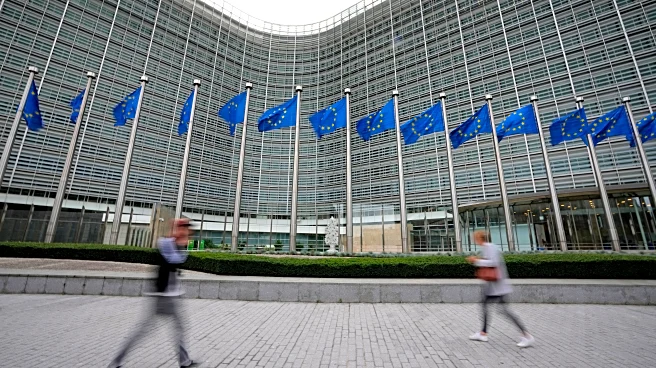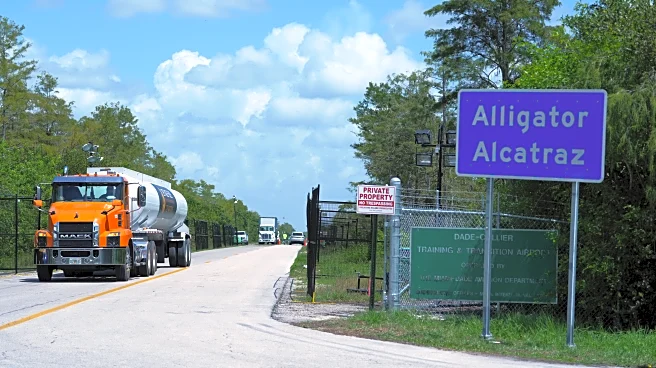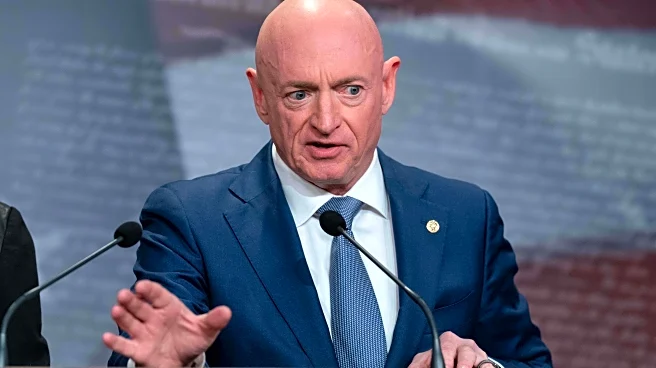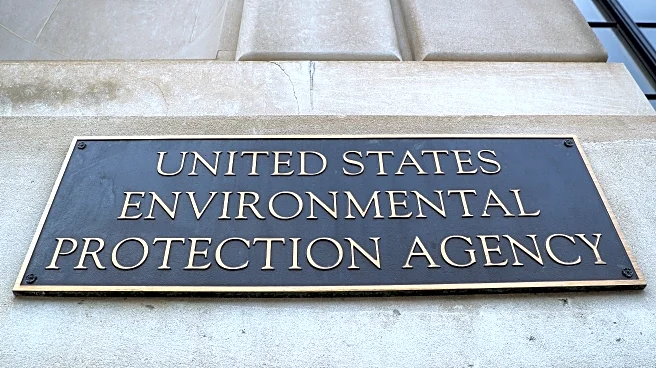What's Happening?
President Donald Trump recently hosted a summit at the White House with several European leaders, including British Prime Minister Keir Starmer, European Commission President Ursula von der Leyen, Italian Prime Minister Giorgia Meloni, French President Emmanuel Macron, German Chancellor Friedrich Merz, Finnish President Alexander Stubb, and NATO Secretary General Mark Rutte. The meeting was aimed at discussing a peace deal between Russia and Ukraine. Despite the significance of the gathering, Trump did not personally greet the European leaders upon their arrival. Instead, they were welcomed by Monica Crowley, the U.S. Chief of Protocol and former Fox News personality. This comes after Trump met with Ukrainian President Volodymyr Zelensky and Russian President Vladimir Putin, where he suggested Ukraine could end the war by conceding territory to Russia.
Why It's Important?
The absence of a direct greeting from President Trump to the European leaders may signal a shift in diplomatic norms and priorities. Trump's recent interactions with Putin and Zelensky highlight his evolving stance on the Russia-Ukraine conflict, potentially affecting international relations and U.S. foreign policy. The European leaders' visit underscores the urgency of finding a resolution to the ongoing conflict, which has significant implications for global security and NATO's strategic interests. Trump's approach could influence the U.S.'s role in future peace negotiations and its relationship with European allies.
What's Next?
The summit at the White House is expected to lead to further discussions on a peace deal between Russia and Ukraine. European leaders are likely to continue their diplomatic efforts to support Ukraine and seek a resolution to the conflict. President Trump's stance and actions may prompt reactions from international stakeholders, including NATO and the European Union, as they assess the implications for regional security and alliance dynamics.
Beyond the Headlines
The diplomatic nuances of President Trump's interactions with European leaders and his approach to the Russia-Ukraine conflict may have long-term implications for U.S. foreign policy. The decision not to greet the leaders directly could be interpreted as a strategic move, reflecting Trump's priorities and alliances. This development may also influence public perception of U.S. leadership on the global stage and its commitment to supporting democratic allies.
